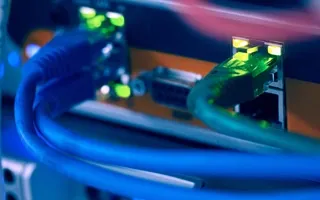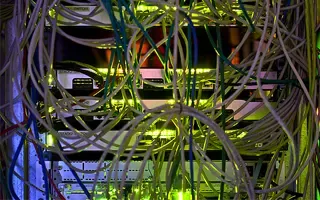Network Fundamentals: Top Picks
Network Fundamentals
LAN Network Topologies
Network topologies can take a bit of time to understand when you're all new to this kind of cool stuff, but it's very important to fully understand t…
Network Fundamentals
Network Switches & Bridges
Network Switches are the evolution of Hubs and Repeaters, and enable the creation of networks by connecting multiple devices together. They are criti…
Network Fundamentals
Next-Gen Firewalls & Topologies. Designing & Buil…
Next-generation firewalls (NGFWs) and DMZ zones are two critical components of network security that work hand in hand to protect an organization's n…
Network Fundamentals
Network Broadcast
The term "Broadcast" is used very frequently in the networking world . You will see it in most networking books and articles, or see it happening on…
Featured Subcategories:
Netflow Articles:
Netflow
Complete Guide to Netflow: How Netflow & its Comp…
This article will cover the basics of Netflow, including its use cases, Netflow supported devices, Netflow history, and variants. We’ll also dive int…
Netflow
Netflow: Monitor Bandwidth & Network Utilization…
Monitoring network traffic & bandwidth usage via Netflow is mandatory for any type and size network. Gaining visibility into user traffic, applic…
Netflow
NetFlow Analyzer: Free Download, Step-by-Step Ins…
In our previous article we explained how a Netflow Analyzer can help you gain visibility into your user traffic, application traffic and data flows w…
Netflow
Netflow vs SNMP. Two Different Approaches to Netw…
SNMP (Simple Network Management Protocol) and Netflow are both popular protocols with admins, prized for their ability to give visibility over the ne…
Network Protocols:
IP Protocol
IP Protocol - Part 3: IP Classes, Network & Host…
This article explains the 'Network-ID' and 'Host-ID' concept found in IP addressing and subnetting. We analyse the structure of IP addresses and netw…
Subnetting
IP Subnetting - Part 5: Subnetting Guidelines
There is always that day when you are called upon to provide a solution to a network problem. The number of problems that can occur in a network are…
TCP - UDP Protocol Analysis
TCP Header Anaylsis - Section 3: TCP Header Lengt…
The third field under close examination is the TCP Header length. There really isn't that much to say about the Header length other than to explain w…
IP Protocol
IP Protocol - Part 2: The Internet Protocol (IP)…
This article examines the Internet Protocol (IP) and its position within the OSI Model. We take a look at the IP Header and all fields contained with…
Supernetting & CIDR
The Supernetting / CIDR Chart
This articles build upon our previous pages covering what is Supernetting (Route Summarization) & How Supernets Work and Supernetting In-De…
TCP - UDP Protocol Analysis
TCP Header Anaylsis - Section 5: TCP Window Size…
Our fifth section contains some very interesting fields that are used by the TCP transport protocol. We see how TCP helps control how much data is tr…
TCP - UDP Protocol Analysis
TCP Header Anaylsis - Section 6: TCP Options
The TCP Options (MSS, Window Scaling, Selective Acknowledgements, Timestamps, Nop) are located at the end of the TCP Header which is also why they ar…
TCP - UDP Protocol Analysis
Transmission Control Protocol - Part 1: Introduct…
Understanding how each protocol fits into the OSI Model is essential for any network engineer. This page analyses how TCP is classified as a 'transpo…
STP/ICMP Protocols:
ICMP Protocol
ICMP Protocol - Part 6: Redirect Messages
The ICMP - Redirect Message is always sent from a gateway to the host and the example below will illustrate when this is used.
Putting it simply (be…
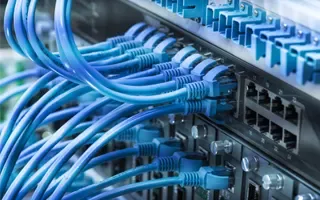
Spanning Tree Protocol (STP)
Spanning Tree Protocol – Part 1: Understand STP P…
One of the most used terms in network is LAN (Local Area Network). It’s a form of network that we encounter in our daily lives, at home, at work, stu…
ICMP Protocol
ICMP Protocol - Part 5: Source Quench Message Ana…
The ICMP - Source Quench message is one that can be generated by either a gateway or host. You won't see any such message pop up on your workstation…
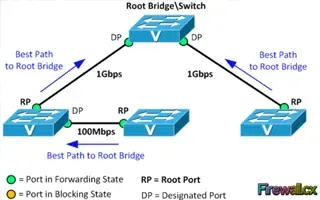
Spanning Tree Protocol (STP)
Spanning Tree Protocol – Part 2: Rapid STP Port C…
Spanning Tree Protocol, Rapid STP port costs and port states are an essential part of the STP algorithm that affect how STP decides to forward or blo…
Wi-Fi Key Generator
Follow Firewall.cx
Cisco Password Crack
Decrypt Cisco Type-7 Passwords on the fly!
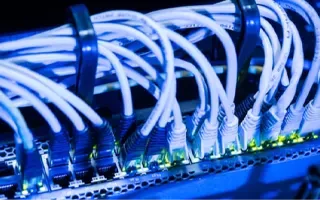
VLAN Networks
Dynamic VLANs
Dynamic VLANs were introduced to grant the flexibility and complexity(!) that Static VLANs did not provide. Dynamic VLANs are quite rare because of their…
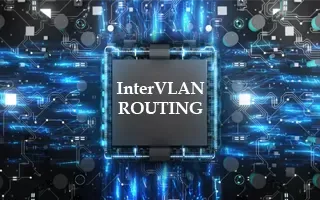
VLAN Networks
InterVLAN Routing - Routing between VLAN Networks
This article deals with the popular topic of InterVLAN routing, which is used to allow routing & communication between VLAN networks. Our article anal…
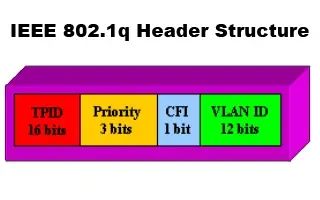
VLAN Networks
VLANs - IEEE 802.1q Trunk Link Protocol Analysis
While the VLAN Tagging article briefly covered the IEEE 802.1q protocol this article will continue building upon it by further analyzing the IEEE 802.1q T…

VLAN Networks
VTP Introduction & Modes
The invention of VLANs was very much welcomed by all engineers and administrators, allowing them to extend, redesign and segment their existing network wi…
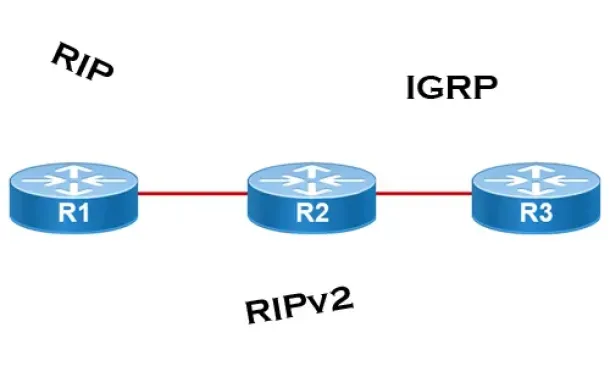
Routing
Distance Vector Routing Protocols
Distance Vector routing protocols use frequent broadcasts (255.255.255.255 or FF:FF:FF:FF) of their entire routing table every 30 sec. on all their interf…
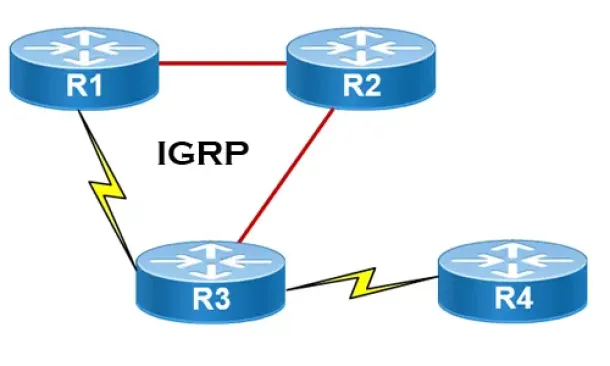
Routing
Interior Gateway Protocol - IGRP
IGRP (Interior Gateway Routing Protocol) is a Cisco proprietary distance-vector routing protocol used in enterprise networks to exchange routing informati…
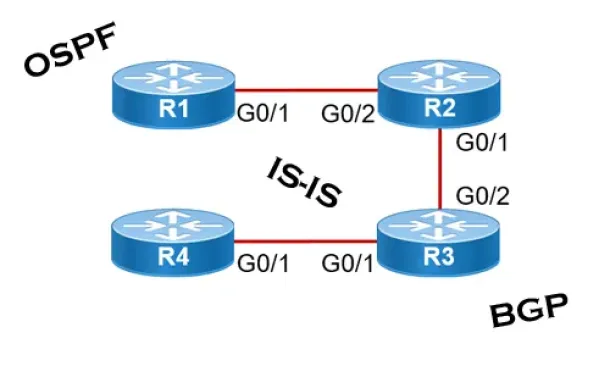
Routing
Link State Routing Protocols
Link State routing protocols do not view networks in terms of adjacent routers and hop counts, but they build a comprehensive view of the overall network…
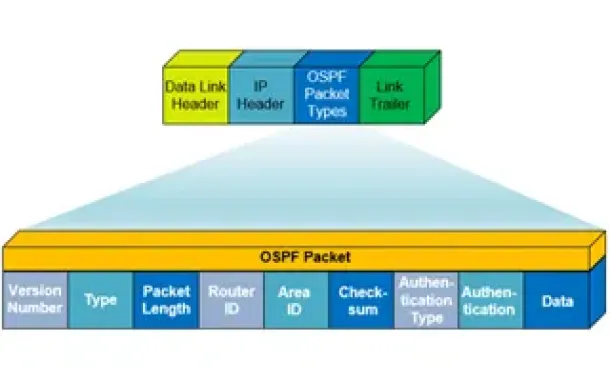
Routing
OSPF - Part 1: Introduction, OSPF Packet Structure, OS…
Open Shortest Path First (OSPF) is a popular routing protocol developed for Internet Protocol (IP) networks by the Interior Gateway Protocol (IGP) working…
Network Address Translation - NAT
The Network Address Translation Table
After that simple and informative introduction to the NAT concept, it's time to find out more about how it works and this is where the NAT table comes in…
Network Address Translation - NAT
Dynamic NAT - Part 2
Our previous article, Dynamic NAT - Part 1, covered the basic idea of Dynamic Network Address Translation. We are now going to take a closer look at the p…
Network Address Translation - NAT
Network Address Translation (NAT) Overload - Part 1
NAT Overload is the most common NAT method used throughout all networks that connect to the Internet. This is because of the way it functions and the limi…
Network Address Translation - NAT
Static NAT - Part 1
Static NAT (also called inbound mapping) is the first mode we're going to talk about and also happens to be the most uncommon between smaller networks.
S…







